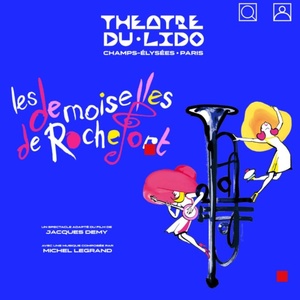FRANCE
Find France shows near you featuring the best of s in France including new shows, revivals & more.Powered By
Back to the Main Page | Browse Local Theatres
Latest France Reviews
by Patrick Honoré - December 16, 2025
The Paris revival remains polished and efficient, but once again raises a familiar question: has Chicago become more concert than theatre?...
by Patrick Honoré - December 14, 2025
La Cage aux Folles finally returns to its French roots at the Théâtre du Châtelet—and the homecoming is worth the wait. Olivier Py’s ambitious revival, led by a radiant Laurent Lafitte, blends glamour, wit, and quiet political force in a production that reclaims Jerry Herman’s musical as both specta...
by Patrick Honoré - October 27, 2025
Just days after its October 22nd 2025 premiere at Paris's Théâtre Antoine, Benoît Solès's bold French adaptation of Gaston Leroux's Le Fantôme de l'Opéra has already sparked a whirlwind of reactions....
by Patrick Honoré - October 22, 2025
From Cherbourg to Rochefort: completing Demy's dream trilogy, The Young Girls of Rochefort soars on stage in Paris....
by Patrick Honoré - October 19, 2025
The French premiere of Dear Evan Hansen at the Théâtre de la Madeleine on 10 October 2025 marks an accomplished and thoughtful introduction of the Tony Award–winning musical to Parisian audiences....
by Patrick Honoré - October 13, 2025
A Triumphant Return: 'Les Producteurs' Lights Up Théâtre de Paris Once More. Oh, what a delight it is to dive back into the uproarious world of Mel Brooks' The Producers—or as the French so aptly title it, Les Producteurs—at Théâtre de Paris-Salle Réjane, running from September 25 2025 to January 11...
Videos








